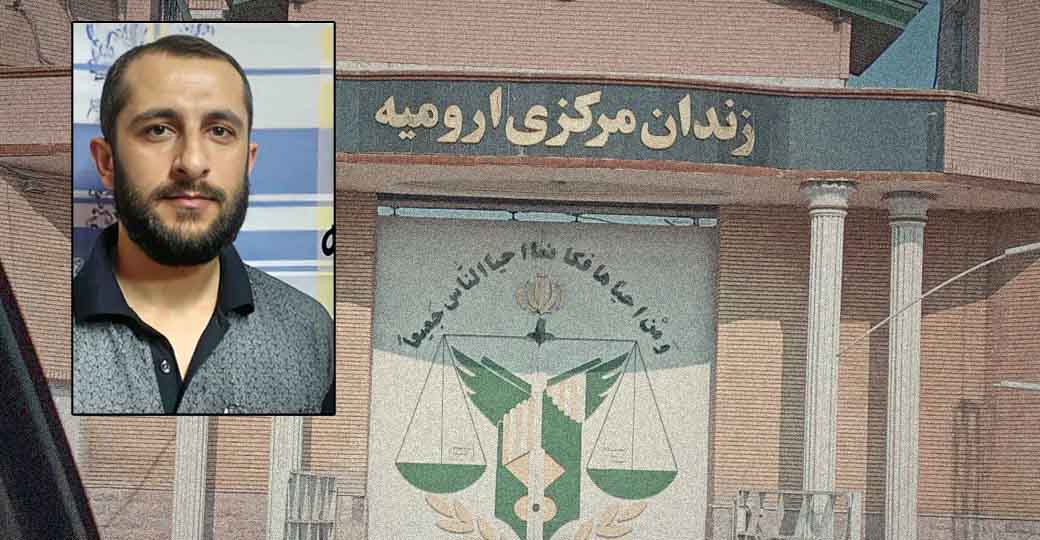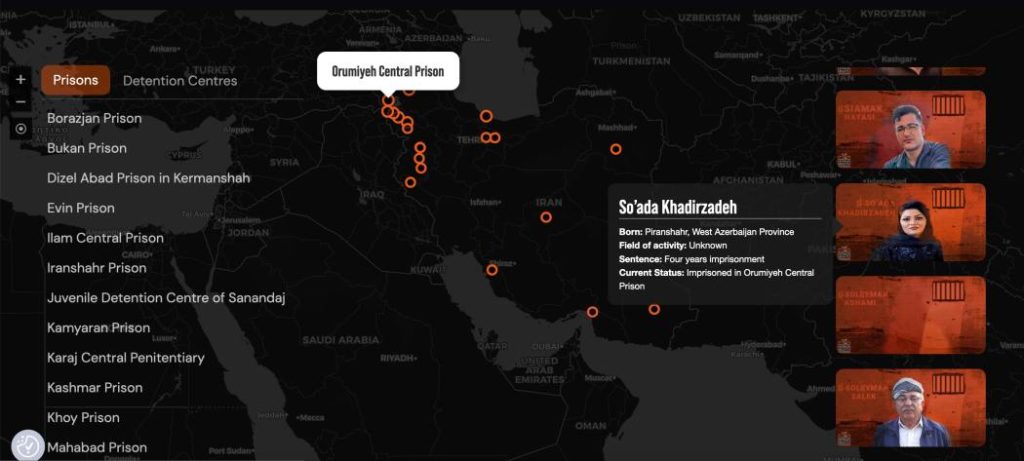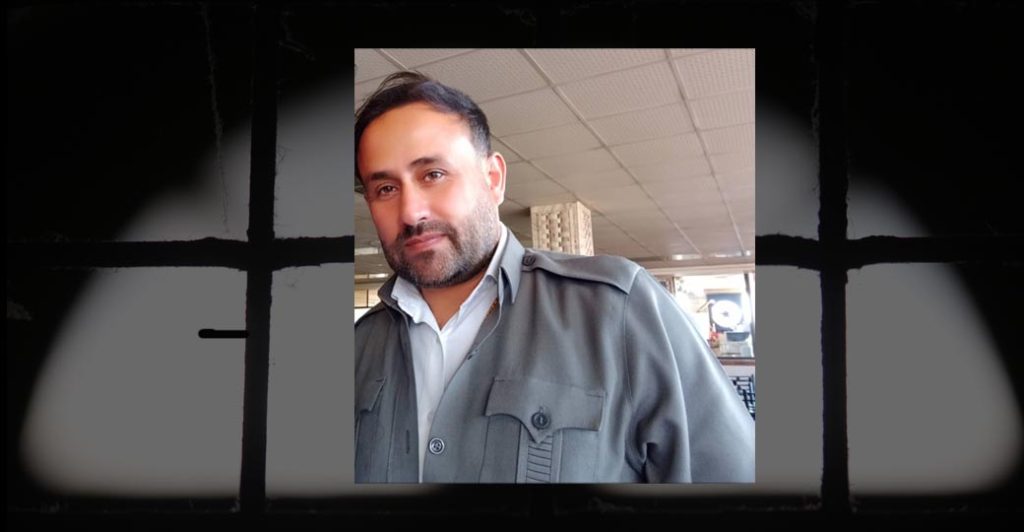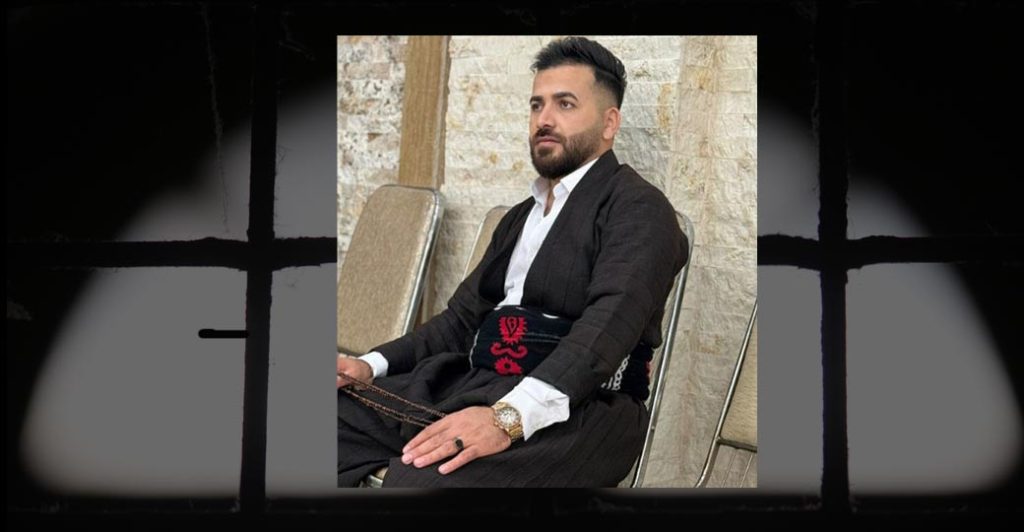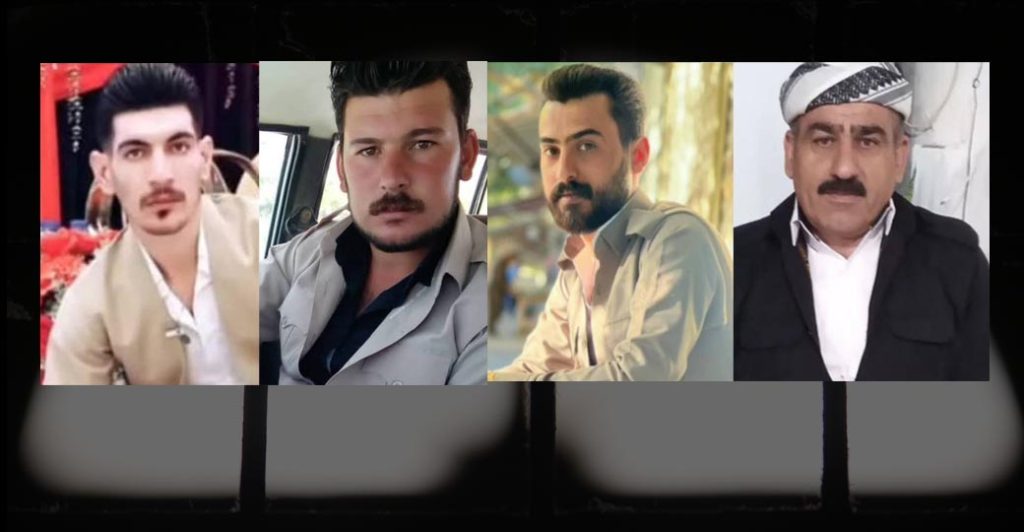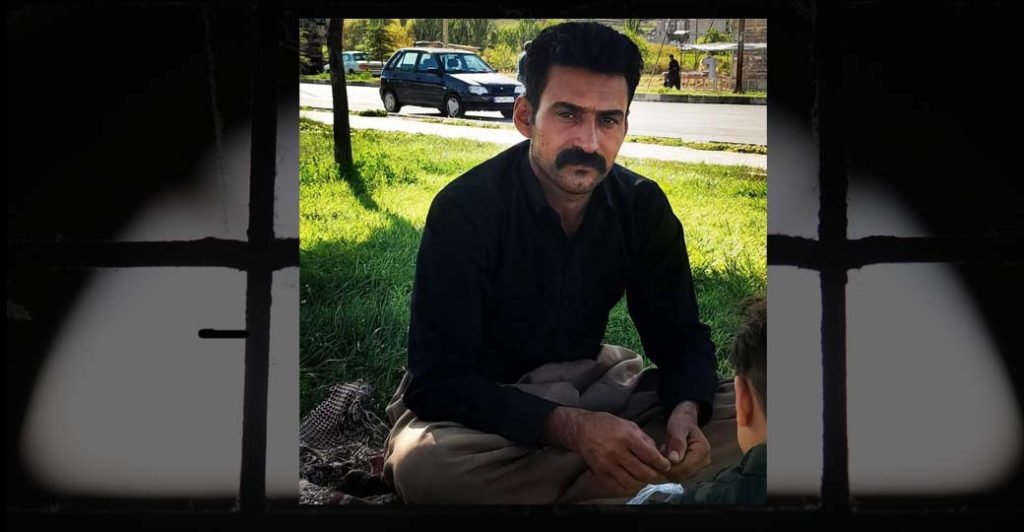Kurdish prisoner of conscience Kamran Sheikheh was executed this morning in Orumiyeh Central Prison in West Azerbaijan Province after 14 years in prison, the Kurdistan Human Rights Network (KHRN) has learned.
Sheikheh had been sentenced to death alongside six other Kurdish prisoners of conscience – Ghassem Abasteh, Ayoub Karimi, Davoud Abdollahi, Farhad Salimi, Anvar Khezri, and Khosrow Besharat – on charges of “spreading corruption on earth” (efsad-e fel arz).
In recent months, all six of his co-defendants were executed in Ghezel Hesar Prison in Karaj, Alborz Province.
On 24 July, Sheikheh was abruptly transferred from Mahabad Prison, in West Azerbaijan Province, to solitary confinement in Orumiyeh Central Prison and executed the following morning.
Following Sheikheh’s transfer to Orumiyeh, his family were summoned to the prison for a final visit and were able to see him briefly.
The prisoner of conscience had been transferred from Ghezel Hesar Prison in Karaj to Mahabad Prison on 1 June for reasons that remain unknown.
Background
Sheikheh, 39, from Mahabad, West Azerbaijan Province, was arrested on 7 December 2009 by security forces in Mahabad and taken to the Ministry of Intelligence detention centre in Orumiyeh.
He was interrogated for eight months on charges of “enmity against God” (moharebeh) before being transferred to Evin Prison in Tehran, where he was further interrogated for six months in wards 240 and 209.
On 13 April 2012, he was moved to Rajai Shahr Prison in Karaj.
In March 2016, Sheikheh and his six co-defendants were tried in Branch 28 of the Islamic Revolutionary Court in Tehran, presided over by Judge Moghiseh, on charges such as “acting against national security”, “propaganda against the state”, “membership in Salafi groups”, and “spreading corruption on earth”.
On 25 May 2016, they were officially informed of the death sentence.
After the lawyer objected to the issued verdict, the case was referred to Branch 41 of the Supreme Court, presided over by judge Razini, which overturned the verdict in early 2017 and referred the case to Branch 15 of the Islamic Revolutionary Court in Tehran.
After the referral of the case to Branch 15 of the Islamic Revolutionary Court in Tehran, presided over by Judge Salavati, in June 2018, the seven prisoners were again sentenced to death on charges of “spreading corruption on earth” (efsad-e fel arz).
Following the lawyer’s objection to the issued verdict, the case was referred to Branch 41 of the Supreme Court, and in February 2020, the verdict was upheld with the pressure from the Ministry of Intelligence.
On 3 February 2020, the prisoners’ lawyer, Mahmoud Alizadeh Tabatabaei, was officially informed of the final verdict.
On 17 September 2017, Sheikheh and two of his co-defendants, Khosrow Besharat and Anvar Khezri, were transferred from Rajai Shahr Prison in Karaj to Orumiyeh Central Prison for a court hearing for the alleged “premeditated murder” of police officer Ebrahim Shakaki.
Their trial took place on 30 June 2018 in Branch 12 of the Orumiyeh Appeals Court, which sentenced Sheikheh to death on charges of “premeditated murder” under the Islamic law of qisas, or retribution-in-kind, which gives the victim’s family the right to retaliate.
The case was referred to the Supreme Court following an appeal, and in February 2019, Branch 41 of the Supreme Court annulled the sentence under Article 469 of the Criminal Procedure Code and referred it back to the issuing branch.
In November 2020, another branch of the Criminal Court of West Azerbaijan Province again sentenced this prisoner of conscience to qisas based on the judge’s discretion.
In August 2023, the seven prisoners were transferred to Ghezel Hesar Prison after the closure and evacuation of Rajai Shahr Prison in Karaj.

